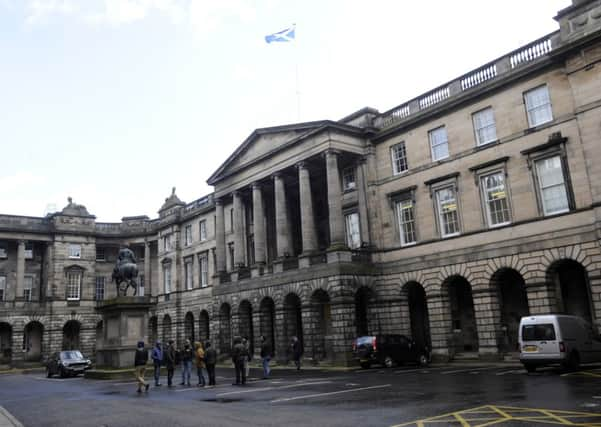Scottish independence: Killers lose vote battle


Judges at the Court of Session in Edinburgh, including the country’s senior judge the Lord President Lord Gill, rejected an appeal brought by Leslie Moohan and Andrew Gillon.
The pair had raised a judicial review challenging their exclusion from the poll on the country’s future on 18 September.
Advertisement
Hide AdAdvertisement
Hide AdLast year Lord Glennie ruled against the pair, who will still be serving time in jail when Scotland goes to the ballot box.
Lawyers acting for Moohan and Gillon appealed against his ruling maintaining that he had misdirected himself in coming to his decision.
But in an opinion issued today the Lord President, sitting with Lady Paton and Lord Menzies, upheld Lord Glennie’s earlier decision.
Law bans prisoners from vote
Gillon and Moohan were sentenced to life imprisonment in 1998 and 2008 respectively.
Gillon was jailed for the murder of Gary Johnstone, 25, who suffered repeated blows to the head with a spade in Bathgate, in West Lothian.
Moohan was ordered to serve a minimum of 15 years after murdering father-of-two David Redpath, from Peterhead, at a hostel in Edinburgh. He claimed he had performed “the last rites” on the dead body of the former oil worker.
The legislation for the referendum ballot specifically states that offenders in prison are not to be entitled to vote.
Advertisement
Hide AdAdvertisement
Hide AdIt was argued in the appeal that Article 10 of the European Convention on Human Rights - the right to freedom of expression - protected the right to vote and that there was a fundamental common law right to vote.
It was claimed that the blanket ban on voting was not proportionate and there was a breach of international obligations.
It was also argued that it was now accepted by the Lord Advocate, the country’s senior law officer, that if Scotland became independent it would not necessarily remain a member of the European Union.
Lawyers acting for the prisoners maintained that on independence, those born in Scotland would automatically be given the status of a Scottish citizen, but the UK government might then withdraw British citizenship.
It was claimed that the rights and obligations of both Gillon and Moohan, who are both Scots-born, would be affected. It was maintained that in those circumstances the rule of law in a modern European democracy required that they should be part of the franchise.
‘Convention does not guarantee vote’
Lady Paton, who gave the decision on the appeal, said: “The question whether a convicted prisoner serving his sentence should be eligible to vote has arisen in many jurisdictions.
“Different countries have taken different approaches, for example a blanket ban, an entitlement dependent upon the gravity of the offence and length of sentence, or eligibility for all.”
She said that in passing the referendum legislation the Scottish Parliament had chosen not to extend the franchise to serving prisoners.
Advertisement
Hide AdAdvertisement
Hide AdLady Paton said previous European cases established that Article 10 did not guarantee a right to vote.
She said: “Neither are we persuaded that there is a clearly identifiable common law fundamental right to vote.
“We take the view that there is no clearly identifiable common law fundamental right to vote in the UK and certainly not a clearly identifiable common law fundamental right to vote in a referendum.
“Thus in our opinion no such right is contravened by the Scottish Independence Referendum (Franchise) Act 2013.”
The judge said that a development in the common law letting prisoners vote in the referendum would “undoubtedly conflict” with or go against the grain of statute, especially Representation of the People legislation which states that convicts serving sentences are “legally incapable” of voting at the ballot box in elections to Parliament and local government.
SEE ALSO